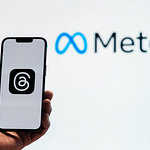Episode Summary: In this episode, we discuss the worst of the semi-conductor industry being behind us, the impact of iOS changes on the ad industry and companies like Snap, and the key milestone that Tesla hit.
This week, we are making available to everyone a transcript of this podcast, with relevant quotes and images. This is usually only for our paid subscribers.
A massive thank you especially to the paid subscribers who keep making it possible for us to keep writing and sending out this weekly newsletter and podcast. You too can be subscriber here:
The episode is based on yesterdays’ newsletter which is available here for free signups and here for paid subs.
Show Notes:
[00:00:00] Introduction
[00:00:37] Labor issues
[00:01:32] Economic cyclicality impacting tech companies
[00:03:27] The metaverse
[00:06:35] The long-term Impact of iOS changes:
[00:07:26] Customers not having an issue with price increases
[00:10:29] Asian supply chain challenges easing
[00:11:55] Apartment renters not seeking to renew leases
Transcript
Introduction:
[00:00:00] Scott: Welcome everyone to a new episode of the transcript podcast. You've got me, Scott, Chris loft. I'm the editor of the transcript, along with Erick Mokaya who's our lead author. We had a new issue of the newsletter sent out yesterday. It was a continuation of the earning season last week.
There was a lot of good stuff in there on the macro side, continued to see strength in the US economy, supply chain issues, saw inflation, and some talk about the federal reserve, which will be meeting this week and likely to start tapering. So yeah, it was kind of a continuation of the same things with a lot of little stuff in there, which we'll talk about. Erick, any high-level thoughts?
Labor issues
"We're at full employment in the field. It's probably the statistic that I am most proud of. Our clubs have been at full staffing for probably over three months." - Sam's Club CEO Kathryn McLay"We really had essentially no problem in attracting -- talent. The people that provide service are what makes the company so successful. They are the ones that the guests love. We’ve had no difficulty recruiting and -- I think it’s because we’re just seen as such an attractive job for people all over the world,” - Royal Caribbean CEO Michael Bayley
[00:00:37] Mokaya: Just want to start with the labor issues because I think for a while now I've been reading like a lot of companies have issues with labor, so it was pretty interesting to see Sam's club and Royal Caribbean saying like we don't see these issues at all. And I think for Royal Caribbean it was mostly because they, I think people are naturally attracted to jobs at sea.
So then they don't have any issue with that, and I think the same for Sam's club. There's an attraction to other types of jobs. So the companies that are saying that they are having issues are mostly, maybe that needs transportation. I think there are companies like Flexsteel, Amazon, and Kimberly Clark. The major issue that continued to be that companies are saying are constraining them is supply chain issues and it was surprising to see almost all the big tech companies actually comment about how supply chain issues are impacting them, whether it's Facebook indirectly through ad spending going down or it's Amazon, which is directly actually being impacted by that. I think that was pretty interesting.
Economic cyclicality impacting tech companies
"These factors have been compounded from many advertisers by major global supply chain issues and labor shortages, which have lost many consumer businesses with less inventory. This has reduced their appetite to generate demand from consumers, which has impacted advertising spend. Businesses in every region and across a range of verticals have been affected. At the same time, we've also seen some impact from COVID surges around the world in places like Southeast Asia." - Facebook COO Sheryl Sandberg
[00:01:32] Scott: Yeah I think the comments from the tech companies, Amazon and Facebook both really stood out to me for a few reasons. I think the most important reason that stood out to me honestly, is it was showing the effects of economic cyclicality on two companies that have not really been hit by economic cyclicality before.
And You're seeing, potentially, the hyper-growth of these companies starting to trail off. Such that they're just becoming more cyclical. And I mean, I have a personal rule of thumb when I'm reading through these conference calls that the companies that don't talk about cyclicality or what's going on in the economy at all are actually the ones you want to be invested in because they tend to have these tailwinds that are just so strong that they don't even make it into the earnings calls.
And so Facebook and Amazon were two companies that were always that way, except this is the first time I've ever really seen them talk about cyclicality in a way that's meaningful. And also in addition, we had a few quotes in there about e-commerce slowing in general, the growth slowing relative to what happened last year. Obviously, we took a lot of demand and pulled it forward with what happened with COVID. But still, the fact is that e-commerce is seeing some effect now.
"Another external factor is slowing e-commerce growth. The strong e-commerce growth in recent quarters was driven in part by the acceleration of the digital transformation that is now tapering out..Businesses are still making the shift online, but e-commerce is no longer growing at the pace it was at the height of the pandemic." - Facebook (FB) COO Sheryl Sandberg"As the world begins to return to some normalcy and the extreme levels of online shopping over the past year make way for more in-person retail and experiences, e-commerce's share of overall retail has reset lower than the peak last year, but still several points higher than it was two years ago and is poised to resume a more normalized rate of growth and continue its share gains of retail over the long term." - Shopify (SHOP) CFO Amy Shapero
[00:02:39] Mokaya: Pretty interesting that you say that, because it's true that I mean, I've been doing ANet school for five years, myself for five to seven years. And I think all that time, we rarely actually pick up quotes from Amazon. And I think also Facebook, they`re pretty dull to read because most of the time it's normally tech stuff and all. So it's very, very interesting that this week they took time to actually discuss the cyclicality. Though now tying it to what you just said, I think then it must mean that they are actually seeing some real issues and actually being also impacted by whatever is happening. They're not immune completely to what is happening in the economy. And of course the slowing down of e-commerce, that's also a challenge and this is Facebook and Shopify talking about it. But the most interesting aspect of the week was, of course, Facebook being renamed as meta. What's your thought on that?
The metaverse
The next platform will be even more immersive -- an embodied internet where you’re in the experience, not just looking at it. We call this the metaverse, and it will touch every product we build. The defining quality of the metaverse will be a feeling of presence -- like you are right there with another person or in another place. Feeling truly present with another person is the ultimate dream of social technology. That is why we are focused on building this." - Facebook Metaverse VP Vishal Shah
[00:03:27] Scott: Well, actually, as I was thinking about talking about the cyclicality impacting Facebook, the Meta change kind of coalesced for me as well because it's it is also an indication that Facebook's core business growth is slowing and they're looking for new avenues of growth which I happen to believe in the metaverse. I think it's going to be a really, really big thing from an entertainment standpoint. And I think we will all engage with the metaverse in some way over the next 10 to 20 years. And Facebook is very likely to lead that. It's interesting, relatively.
[00:04:00] Mokaya: I mean, of all the companies that are walking on the metaverse, I think Facebook is the loudest and they're the guys who have done, I think they, as you say, like they've brought the conversation from being just a tech only, or something that happens on in gaming platforms to now something that actually happens in the real world, conversations about okay, how does the metaverse impact us and how are we going to benefit from us? I mean, a lot of memes and the jokes on Twitter this past week about the metaverse.
“Over the next decade, these new platforms are going to start to unlock the kinds of experiences that I wanted to build since before I even started Facebook. Along with those social experiences, I expect a massive increase in the creator economy and amount of digital goods and commerce. If you're in the metaverse every day, then you'll need digital clothes and digital tools and different experiences. Our goal is to help the metaverse reach 1 billion people and hundreds of billions of dollars of digital commerce a day” - Facebook CEO Mark Zuckerberg
[00:04:30] Scott: Look, I read that quote and also a quote that I think didn't make it into the final cut, but about Facebook focusing on younger audiences and talking about how TikTok was one of their most formidable competitors. And I just read those things and thought to myself; What an amazing competitor Mark Zuckerberg is and what a visionary he is, because really what happens in entertainment and media is that the big platforms exist. And then they tend to be displaced by new media avenues. And so you know, Facebook and its original iteration could have gotten displaced by Twitter, could have gotten displaced by Instagram, and could have gotten displaced by TikTok, is kind of in a way, but they know how to get ahead of those. I mean, Zuckerberg has enough vision to really get right in front of those. And I think he sees that the metaverse is an existential threat to the way that we interact with the internet today via the web browser or the mobile phone Which is where Facebook thrives and he's getting ahead of this. What he thinks is like this massive circular change where previously new startups, new entrances could have entered and probably still will. But if Facebook is controlling that it continues to control the internet for another cycle. So it really shows vision on his part and shows why he's one of the best capitalists in the world.
"Historically, young adults have been a strong base, and that's important because they are the future. But over the last decade, as the audience that uses our apps has expanded so much and we focused on serving everyone, our services have gotten dialed to be the best for the most people who use them rather than specifically for young adults. And during this period, competition has also gotten a lot more intense, especially with Apple's iMessage growing in popularity and, more recently, the rise of TikTok, which is one of the most effective competitors that we have ever faced. So we are retooling our teams to make serving young adults their North Star rather than optimizing for the larger number of older people. Like everything, this will involve trade-offs in our products, and it will likely mean that the rest of our community will grow more slowly than it otherwise would have. But it should also mean that our services become stronger for young adults. This shift will take years, not months, to fully execute, and I think it's the right approach to building our community and company for the long term" - Facebook CEO Mark Zuckerberg
[00:05:49] Mokaya: Yeah, I think to quote him directly, he says over the next decade, these new platforms are going to start to unlock the kind of experience that I wanted to build since before I even started Facebook. So it's like it's been a long-term vision from the time Facebook started on the desktop and then shifted to mobile in 2014 and the likes. And now, totally going into the metaverse. So I think it's all about staying ahead of the competition and that's actually disrupting your own business.
So if it works out, it's going to walk out big time. And if it doesn't of course, well, it was just another bet and there's still the core business of trying to also revive. But Facebook still has the challenge of; they need to get the younger audiences back in. And I think by creating this big vision of a metaverse, it's also about bringing in the young people.
The Long-term Impact of iOS changes:
"There are 2 big challenges coming from these iOS changes. The one is targeting and one is measurement. I'm taking the second one first. On measurement, we think we can address more than half of that underreporting by the end of the year and make more progress in the years ahead. We estimate we're underreporting iOS web conversions. We believe that real-world conversions like sales and app installs are higher. And so we have to do the work to help clients measure these properly in order for them to really understand the outcomes they're getting and improving performance. And again, we think we can get a good chunk of that done this year and more in the next year. Targeting is a longer-term challenge. Our direct response products are built on user-level conversions. And as a result of the iOS changes, we don't see the same level of conversion data coming through. So we have to rebuild our targeting and optimization systems to work with less data. So this is a multiyear effort" - Facebook (FB) COO Sheryl Sandberg
[00:06:35] Mokaya: Something else that I noted is the iOS changes. They are really affecting companies like Facebook. I think from two aspects, they say, I think targeting and measurement is becoming more blurry in that sense. On one hand, we have Facebook saying that this IRS change is actually impacting them a lot. And then we have companies like Twitter, which are like, ``oh, we don't use those kinds of cookies, Like to target customers. We actually rely on first-party data.`` So then they're not massively affected. And then in the middle, you have Apple who said consumers are actually loving that they can choose whether to be tracked or not to be tracked. And so this means that these IRS changes, they are here to stay. So they are in their long-term. So companies have to adjust. So this is a very significant point of shift in the advertising cycle or the advertising models that the companies were operating for a while. Thoughts on that yourself?
Customers not having an issue with price increases
"Last quarter, I think I talked about how we were seeing roughly a 6% increase year-over-year in the U.S. We are still seeing that and that -- that's pretty much the level we expect for the full year 2021 over 2020 right around that 6%...We haven't seen, I’ll say, any more resistance to our price increases than we've seen historically. So that the 6% has been pretty well received by customers." - McDonald's CFO Kevin Ozan
[00:07:26] Scott: Yeah. I mean, I think the fact that Facebook was talking about the targeting issue, creating a longer-term challenge, that's going to take a multi-year. One other thing I wanted to go back to earlier in the macro section was a comment from McDonald's talking about how they are seeing that their customers are not having an issue with 6% annual price increase in the inflation. They're able to take price and not see a real difference in volumes. I think that's really important because I think that, that is something that has been the case this year, that I don't know if we're going to actually be able to continue to sustain that rate of inflation and not see some sort of demand response.
This just is an anecdotal feeling I'm getting from driving around and living my own life here in the US you know, I saw six and a half dollars gas prices in, in LA this week, which is like $6 a gallon. You know, there's a lot of people that are going to be restricted in their mobility because of how expensive gas prices are.
And then the same thing, like I went out to dinner this weekend and the bill when it comes, it's like meaningfully painful compared to what it used to be. I mean, to the extent that it feels like I'm spending twice as much when I go out to eat in a restaurant today than I was before the pandemic. So I do think that there may be some demand responsiveness. We should be on the lookout for this, as this inflation continues to hit.
[00:09:02] Mokaya: I agree with that because at one point, I remember Somewhere in mid this year, I think the statistics that came from Bank of America was that around 66% of money that was flowing through the bank accounts was actually being saved. So I think, a hint I'm getting is, some of that money is actually being spent away now. So I think like going into next year, it may actually be that consumers don't have any more money to spend because the stimulus check has stopped.
“the biggest news is our consumers, the best we calculated have only spent about 30% to 35% of the stimulus dollars that went into their account from the last two rounds. Therefore they have lots of purchase power waiting to go out if they choose in the future” - Bank of America CEO Brian Moynihan [June 2021]
So they may have been able to sustain the demand this year because of that money that they had saved. But I wonder how that is sustainable Long-term. So a one-year price increase of 6% is okay. But like a consecutive 6% price increase may actually not be sustainable. So I think that's a trend I've seen in a couple of companies here and there in the earning score, so customers don't have any problem taking price increases.
They don't have any problems waiting. They don't have any problems right. Currently, but you'd expect that at some point they're going to feel this in their pockets and then they're actually going to resist those kinds of price increases. And that's where you're going to get demand being hit.
[00:10:09] Scott: Yeah. At a certain point when inflation is running higher than wages, compensation increases, you have a real decline in purchasing power and that is likely to flow through at some point because I don't think wages are rising at 6% on average for McDonald's customers.
Asian supply chain challenges easing
"There was a bright spot during the quarter with the foam supply as our vendors do not see this as an issue moving into the fourth quarter. Vietnam began a shutdown in late July and things accelerated in August, where a majority of our factories were closed for the months of August and September. We are getting positive news from our vendors as they began opening at the beginning of October. However, it will be a slow process to get back to 100% production" - Haverty Furniture President Steven Burdette
[00:10:29] Scott: One or two other things that I think are really important from this week's newsletter that people should have on their radars. One that was in the international section was a company called Havarti furniture talking about getting positive news from their vendors, that their vendors in Vietnam or beginning to open back up.
And that could be a really big signal for a marginal improvement in the supply chain. Because Asia had been the bottleneck for a long time. So Vietnam is opening back up with more vaccinations, things like that. It could have implications for the broader supply chain that are positive.
[00:11:01] Mokaya: I think Europe is also picking up in terms of growth. I think this was a quote from Lazard that I saw there and people may be underappreciating. Maybe Europe is not that much talked about because they have had struggles with the pandemic, in the past year or so, but I think they actually are picking up slowly. All restrictions have been lifted, especially in the Nordics now. So people are able to move around as if it was pre-pandemic. Of course,just a few restrictions like keeping distance and all, but generally I think that's what's happening. Maybe one more thing that I wanted to note was the slump in trading in Robin hood. I think it's pretty interesting like there was a surge in volatility in markets in the first half of the year, that's when they actually IPOed. And now it seems like crypto activity is actually slow, coming off a very record high. So interesting to see where that goes from here.
Apartment renters not seeking to renew leases
"In August, we surveyed more than 20,000 renters about their moving intentions. As a result of that survey, we expect the apartment market will experience increased turnover, more out of market moves and lower renewals as we head into 2021 -- 2022. When asked, when do you think you will next move into a new residence, 53% of survey respondents said they will move by winter. When asked, what do you plan to do when your current lease expires, only 24% of renters expect to renew within the same community, down from 47% pre-COVID. This all makes sense given the huge affordability changes and changing work-from-home policies." - CoStar CEO Andy Florance
[00:11:55] Scott: Yeah, definitely. I think it is an indicator of just retail trading in general. One more thing I wanted to mention as well, God, there was a lot of good stuff in there this week. But CoStar group talked about renters getting ready to move saying that in a survey they did recently only 24% of apartment renters expect to renew within the same community down from 47% pre-COVID. Apartment renters are probably just one segment of a broader part of the population that is potentially going to make a big move with their life. Like moving cities, moving jobs, as the economy has settled into a more normalized ish zone post-COVID as it's settling, people are able to take that, potentially make big changes with their lives.
[00:12:40]Mokaya: Yeah, couple that with working from home trends that you've been observing the pandemic, and that actually tells you there is a pretty significant change in mindset in where people want to live and stay and if housing prices are going to go up the way they've been going for a while, well we are up for some significant changes ahead. I think we'll stop there for this week. I think this week was really rich in terms of quotes. We had a really difficult time cutting down on quotes. We have had a huge amount of quotes that we left out this week. Thank you for joining us this week.












